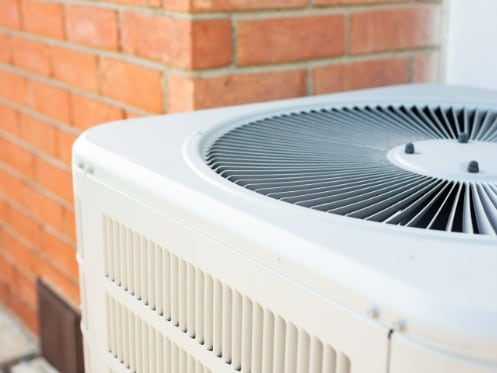3 Benefits of Having an HVAC Zoning System

Having standard, central HVAC in Anaheim, CA was once ideal. After all, central heating and cooling systems accomplish things that basic window ACs and space heaters simply cannot. With the right equipment, homeowners were able to enjoy year-round comfort at an affordable cost. Now, however, innovations in HVAC technologies and higher expectations for efficiency have made zoned central systems a far more popular choice. If you have yet to zone your living environment, the following are three important benefits that an HVAC zoning system provides.
1. Customized Comfort
Whenever there’s more than one person living in a residential unit, there’s always the potential for dramatically different temperature preferences. For instance, while you might like the air in your living space to be crisp or ice-cold, other residents may prefer a warmer and all-around cozier environment. With standard, central HVAC, it’s impossible to meet everyone’s demands at once. This often leads to battles at the thermostat with one resident randomly cranking the temperature setting up and the other randomly cranking it back down.
When zoning central heating and cooling systems, HVAC technicians modify the existing ductwork in buildings. They add air duct dampers just before each service area and connect these to a central control system. This system is governed by the thermostats in each room or zone. When a person doesn’t want cooled or heated air flowing into their space, they can set the temperature they prefer, and the respective damper will close.
There are multiple, possible configurations for zoned HVAC systems. You can have several zones with separate thermostats in each, or you can simply divide your first floor and your upper floor into two zones and have just two thermostats.
In addition to air duct dampers, zoned central HVAC systems also have bypass ducts. Bypass ducts allow them to safely adjust airflow to meet the varied needs of building residents without creating dramatic increases in in-duct air pressure. Without zoning, many consumers attempt to redirect conditioned air by firmly closing the air vents in their immediate areas. This causes a rise in the static pressure within their ducting, accelerates wear on their heating and cooling equipment, and increases the likelihood of overheating.
Being able to customize the delivery of conditioned air in your home won’t just end arguments at the thermostat. It will also reduce the likelihood of closed vents, opened windows, and other efforts to customize indoor temperatures the wrong way.
2. Spend Less by Only Heating or Cooling Rooms That People Are Actively Using
Standard central HVAC systems heat and cool homes uniformly. When these systems are correctly installed and performing efficiently, there shouldn’t be major hot or cold spots throughout buildings. Given that it’s not possible to customize air delivery in a long-term fashion by shutting air vents, having a central HVAC system that isn’t zoned means having to heat and cool spaces that no one is actively using.
You might live alone in a large house or you may live with people who are often away. There could be rooms like guest rooms or dens in your home that are rarely unoccupied. Zoned HVAC systems are markedly more efficient than standard, central systems simply because they eliminate the need to cool entire homes at once. By adjusting thermostats in spaces that aren’t in use, you can redirect conditioned air as needed, lower your carbon footprint, and save considerable amounts of cash. This also means subjecting your heater and air conditioner to far less wear over time. As a result, you can enjoy fewer repair bills, longer equipment lifespans, and better overall value.
3. Quiet Operation and Enhanced Convenience
One of the most impressive benefits of HVAC zoning is quieter operation. If you’re tired of choosing between cool, conditioned air and being able to hear your TV, zoning is an excellent choice. Perfectly regulated air pressure within HVAC ducting and seamless air delivery eliminate a lot of unwanted noise. Best of all, most HVAC zoning systems can be controlled by mobile phones, remotes, tablets, and other common, hand-held devices. After a long, hard day at work, you won’t have to get up from your favorite recliner to make any adjustments you want or need. Some zoned systems can even be seamlessly integrated with other smart home features.
We’re committed to providing our clients in Anaheim, CA the latest and most innovative HVAC technologies. We offer air conditioner, heater, mini-split, and heat pump installation, maintenance, and repairs. You can also turn to us for HVAC zoning, indoor air quality services, and water heater service. To find out more about HVAC zoning or to schedule an appointment, call Alps Heating & Air Conditioning, Inc. now!

